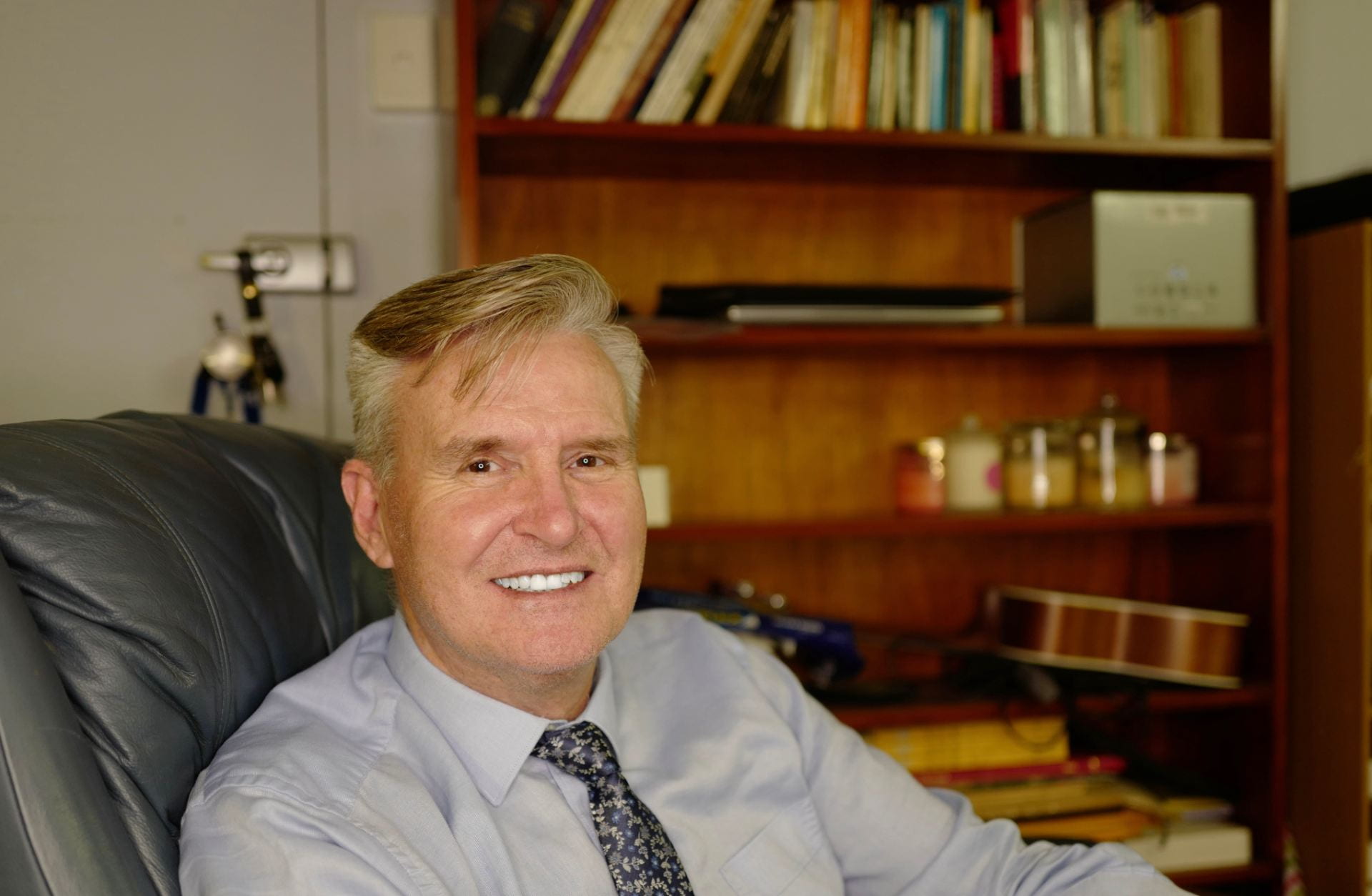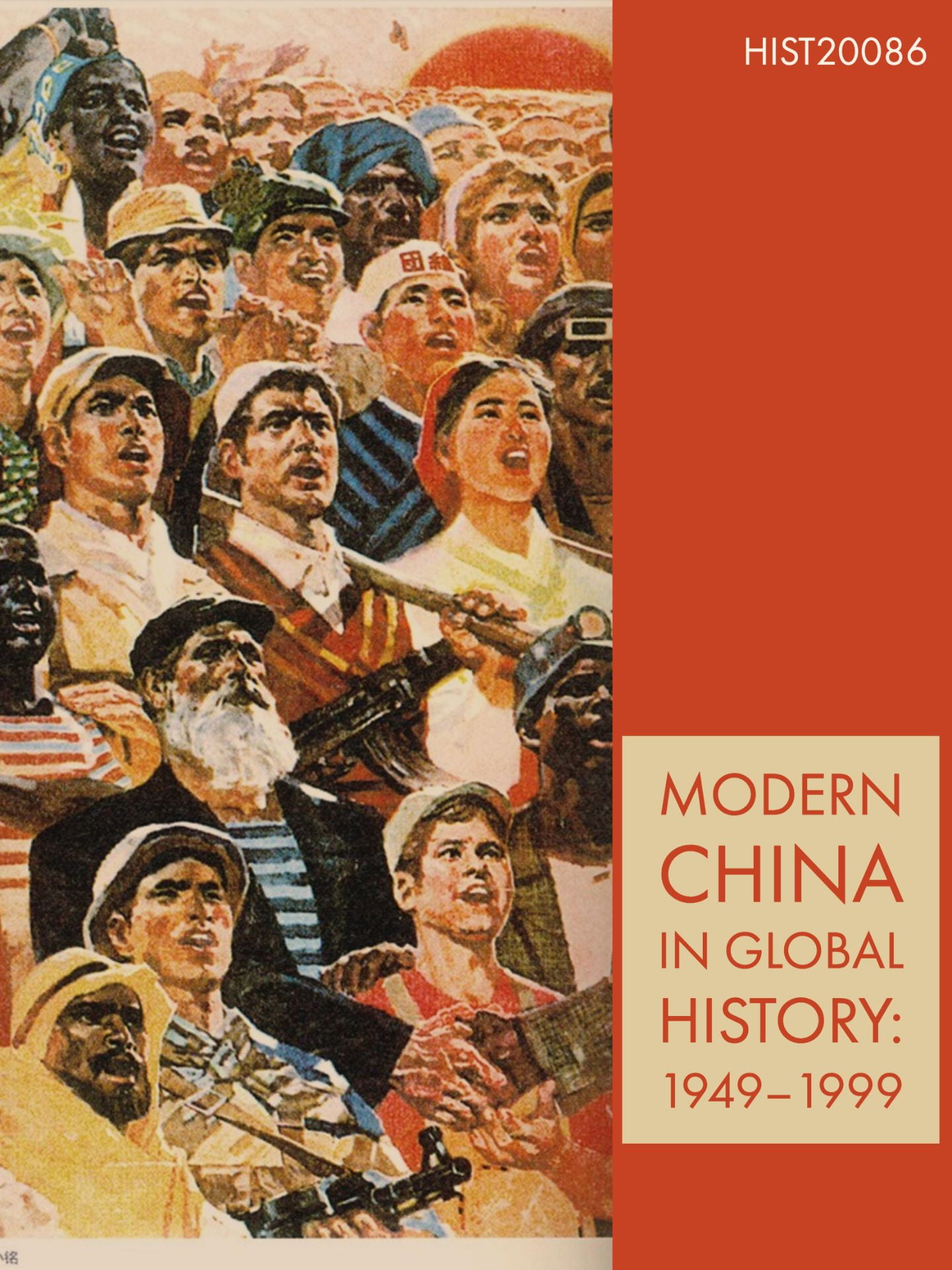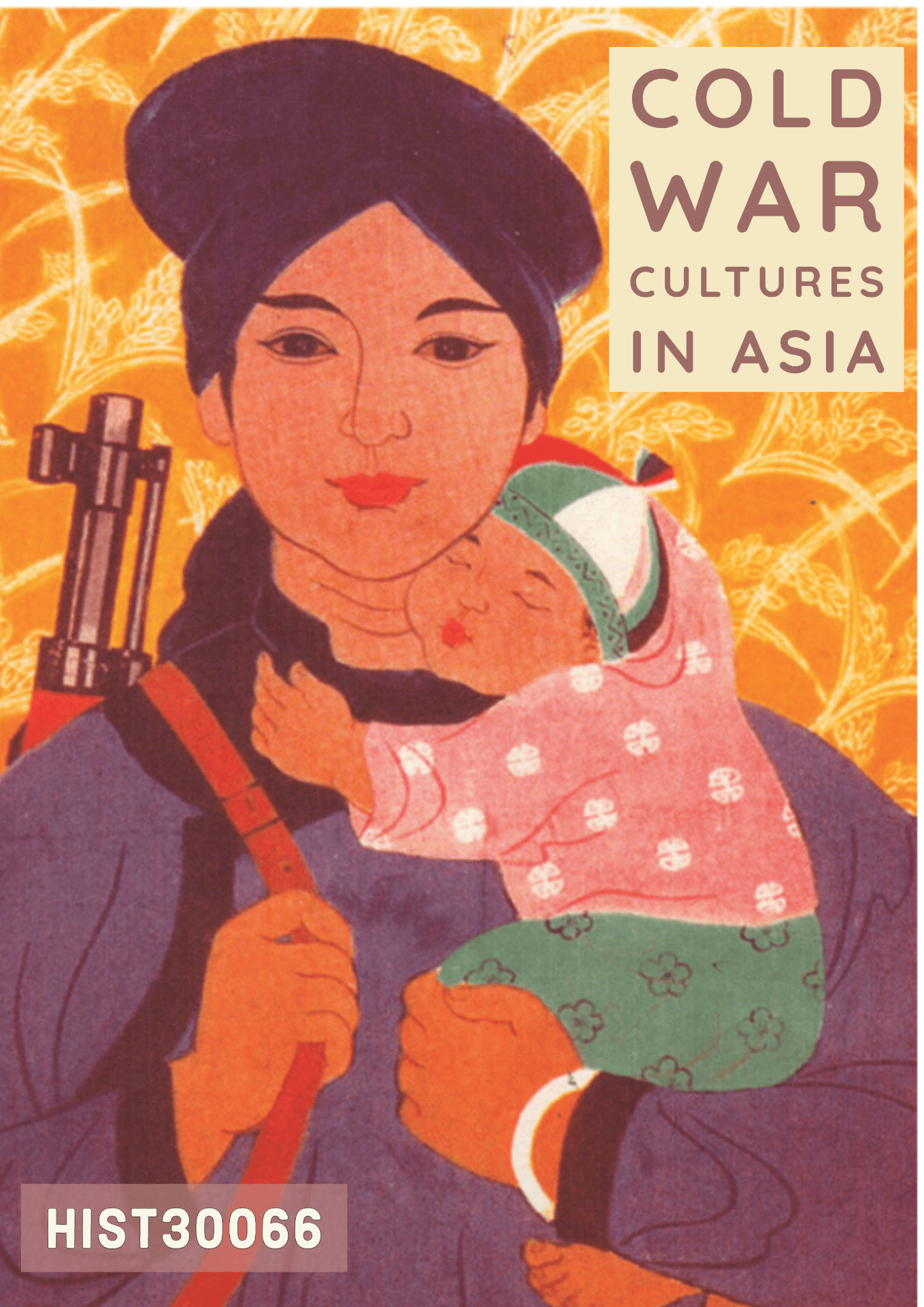
Welcome Dr Richard Lee, New Lecturer in Chinese History
In February 2021 Dr Richard Lee commenced his appointment as Lecturer in Chinese History in the School of Historical and Philosophical Studies. He will be teaching Modern China in Global History (Semester One) and Cold War Cultures in Asia (Semester Two), as well as supervising Honours students. In this interview, Dr Lee responds to a set of questions posed by current History PhD candidate Jiyuan (Luke) Yin about his research interests and his approach to the teaching of Chinese history.
Welcome to SHAPS! We are delighted at your appointment – especially those of us who work on Asian history.
Let me start by asking about your teaching plans. If I were to sign up as your student in the coming semesters, what might I expect from your classes? What insights do you think I might gain from your Chinese history subjects?
I frequently try to convince my students that history is as much about the present and the future as it is about the past. As one of my favourite historians Wang Ban has argued, history is not an autopsy. On the contrary, history – through its stories of triumph, struggle, and defeat – gives us an insight into what it is to be human and this is a powerful knowledge to have. After dealing with what happened, how it happened and why it happened, we can come to some idea of the meaning of history, the ‘moral’ of the story and a guide for life. These meanings are the reason that history is important but they are also necessarily subjective. My aim in teaching these two subjects, then, will be to assist my students to arrive at their own insights within the overall theme of the subject. Discovering these insights is the great joy of being a student, and sharing these insights is the most rewarding aspect of being a history teacher.

You’ve taught extensively on Chinese history and culture including a number of undergraduate units at the Asia Institute at the University of Melbourne. Do you mind sharing with us some details from your teaching journey so far?
I have found that I have learnt much through teaching. Though my research focus at the Asia Institute has been upon the post-Mao period in China, I had the good fortune to be a student of Dr Lewis Mayo whose research interest was never limited to his field of Tang [618–907] and Song dynasty [960–1279] Dunhuang. Under Lewis’s supervision, I have been teaching some of the subjects in Chinese history and culture offered by the Institute, and these have ranged over the entire period of documented Chinese history.
Representing the earliest period, I have taught the subject Classic Chinese Civilisation, which deals with the world of thought in ancient China by studying the moral and political teachings of Confucius and some of the other philosophers from the ‘hundred schools of thought’. I have also taught the subject Culture and Empire which deals with the imperial period of China from the establishment of the Qin dynasty (221 BCE) to the end of the Qing dynasty (1911). I have also taught in my own field, modern Chinese history, politics, and culture in the subject China since Mao which deals with developments in China’s reform period and have come to a more nuanced understanding of this period by knowing more about the historical and philosophical context.
You’ll be teaching Modern China in Global History (HIST20086) (Semester One) and Cold War Cultures in Asia (HIST30066) (Semester Two). What sort of topics are you going to cover in these units?
 Modern China in Global History examines China’s relationships with the rest of the world and would therefore appear to fit into a history of international relations. I think the narrative I am trying to unsettle with this subject, however, is the longstanding Sino-centric view that China’s culture is so dominant and distinctive that it does not blend well with outside influences – that it either ignores or overwhelms foreign ideas. By treating the subject as a history of ideas (such as democracy, nationalism and socialism), I think we will see that Chinese history in the late twentieth century is not so insular as it is often claimed to be.
Modern China in Global History examines China’s relationships with the rest of the world and would therefore appear to fit into a history of international relations. I think the narrative I am trying to unsettle with this subject, however, is the longstanding Sino-centric view that China’s culture is so dominant and distinctive that it does not blend well with outside influences – that it either ignores or overwhelms foreign ideas. By treating the subject as a history of ideas (such as democracy, nationalism and socialism), I think we will see that Chinese history in the late twentieth century is not so insular as it is often claimed to be.
The other subject, Cold War Cultures in Asia, will give us an opportunity to use the methods of cultural history to examine historical experience. By examining cultural productions which interpret and reflect upon common issues, we will explore how different societies in Asia understood their lives in a bipolar (or tri-polar) world. One important aspect in teaching both of these subjects will be to stress the cultural commonalities and universal concerns which motivate individuals and societies in history – not so that these histories are ‘culturally-deodorised’ but so that unfamiliar elements of cultural practice do not present an obstacle to our understanding.
cultural productions which interpret and reflect upon common issues, we will explore how different societies in Asia understood their lives in a bipolar (or tri-polar) world. One important aspect in teaching both of these subjects will be to stress the cultural commonalities and universal concerns which motivate individuals and societies in history – not so that these histories are ‘culturally-deodorised’ but so that unfamiliar elements of cultural practice do not present an obstacle to our understanding.
Could you tell us a bit about your teaching philosophy?
I am not sure whether this can be elevated to the status of a philosophy but I am agreeably impressed with Deng Xiaoping’s assertion that it does not matter if you have a white cat or a black cat – as long as it catches mice, it is a good cat. In this spirit, I can perhaps suggest that my teaching is ‘practice led’, since the criteria are whether or not students are enjoying the learning experience and whether they are meeting the learning objectives. If my students tell me that something in my teaching is not working, then it will change. I have discovered that the way to find out, is to ask.
My approach to the personal skills of teaching, on the other hand, can indeed be considered a philosophy, since I have borrowed it from Confucius, who upholds the student-teacher connection as one of the cardinal relationships of life. The Master argues that the relationship is one of reciprocity as well as hierarchy and, as a consequence, the student only owes their teacher respect to the extent that the teacher acts so as to deserve it. Essentially, this means that to be regarded as a teacher, I must act with benevolence and kindness as well as competence. It is not, in fact, so long ago that I was a student myself and I realise that this can be a stressful and lonely time. The essence of my philosophy is that it is none of my business to add to the stress.
In 2018 you completed a PhD thesis on the cultural history of Chinese intellectuals in the post-Mao era. What makes you interested in the life of modern Chinese intellectuals and why is this a topic that’s important for understanding twentieth-century Chinese history?
I remember, at an early stage of my research, reading the transcript of a lecture given at the ANU by the prominent Australian sinologist Geremie Barme in which he discussed the concept of “understanding China”. He observed that foreign scholars, like himself, who criticised aspects of contemporary Chinese society were told that they “didn’t understand China”. Barme also observed that, over the course of recent history, many Chinese artists, writers, filmmakers and intellectuals have also been told, when they have been tempted to criticise, that they too did not understand China. This seemed to me (and to Geremie Barme) an obvious absurdity but it did draw my attention to Chinese cultural practitioners as a source for alternative understandings of Chinese history.
My research interest is mostly to do with narratives of Chinese history and the uses to which these narratives are put. I had already noticed that much of the literature and film produced in China in the 1990s was concerned with identifying a contemporary moral crisis, which was the direct result (or so these artists argued) of China’s recent history. This position was in singular contrast to the official view in which China’s history was an inexorable progression to universal happiness and greatness. Clearly, history was the subject of contention within China and I felt that the alternative narratives of history outlined in cultural productions – what I called ‘fictional history’ – were an important part of the debate.
Although the trend of writing fictional history was general in this period, I decided to trace the development and significance of these alternative narratives of history by focussing on the novels of Yu Hua [Chinese novelist and author, born 1960].

Yu Hua is a representative of the generation of young people who were the first to attend the newly reopened universities in China after the death of Mao in the late 1970s. This generation, whom I refer to as the post-reform zhishifenzi [intellectuals], were intended to form the basis of a new expert class which would oversee China’s economic and cultural transformation along Deng Xiaoping’s new pragmatic lines. In the revolutionary period, under Mao, an individual’s class affiliation was the determinant in leadership – it was more important to be ‘red’ than expert – but, in the wake of the economic and social destruction of the Cultural Revolution, in the reform period, the experts would be back in charge.
I argue that this nascent class of experts shared important historical experiences and used these as the basis of their own class identity or ideology. The tendency to use historical experience in identity formation was evident in the cultural productions of this generation, particularly those produced in a later period (after 1989) when the zhishifenzi class was subsumed into a new Chinese middle class. I observe that much of the literature, film and art of the 1990s deals with the zhishifenzi class critique of Chinese society and that this critique is made in narratives of history.
Briefly then, my research identifies an alternative narrative of Chinese history which emerged in the post-reform period and was accepted as authentically representing the lived experience of the members of an intellectual class, the post-reform zhishifenzi. I argue that this narrative is used as a marker of social identity and as a complex and comprehensive way of explaining China’s present social predicament.
Since 2020, tensions have been growing over political issues between China and Australia. From the perspective of a lecturer in Chinese history, do you see the teaching of Chinese history in Australian universities as crucial to a better Sino-Australian relationship in the post-COVID era? What are your thoughts on this?
I observe that nations and cultures, like histories, are subject to narratives which reflect popular perceptions. Conflict and threat seem to be the dominant narratives of the moment in the relationship between China and the world, and I think this has led to a general lessening of interest in studying Chinese history, language, and culture. It is as if the ‘problem’ of China is too knotty to attempt a solution. My own view is that the study of history, if conducted properly, discloses our common humanity and prompts an empathy which can only bring us together.
I often wonder if the problems we have in understanding each other arise from the weight we give to cultural distinctiveness. As a history teacher, I think I have a responsibility to promote understanding by recruiting cultural differences – to explain how these differences reflect universal experiences. Culture can be seen in a narrow sense as a set of practices which denote difference, but it can also be seen more essentially as different responses to common issues of human existence. If we allow cultural differences to stand in the way of empathy, then I think we miss the purpose of studying history and the result can only be misunderstanding.
This is not to say that the deterioration in the national relationship is all a matter of perception but I do not see that the solution is to barricade ourselves behind cultural difference, to give up and to assert that East is East and West is West and never the twain; I suggest, then, that the study of Chinese history can only be helpful and, so, I commend it to your readers.
Jiyuan (Luke) Yin is a PhD candidate in History. His doctoral research concentrates on the urban history of treaty ports and everyday life in late nineteenth- and early twentieth-century China, specifically in relation to social and cultural interactions between foreigners and Chinese. Luke is interested in historical topics around gender and sex, global immigration and travelling. Luke is a member of the editorial team for the Melbourne Historical Journal.
Feature image: Nuno Alberto via Unsplash